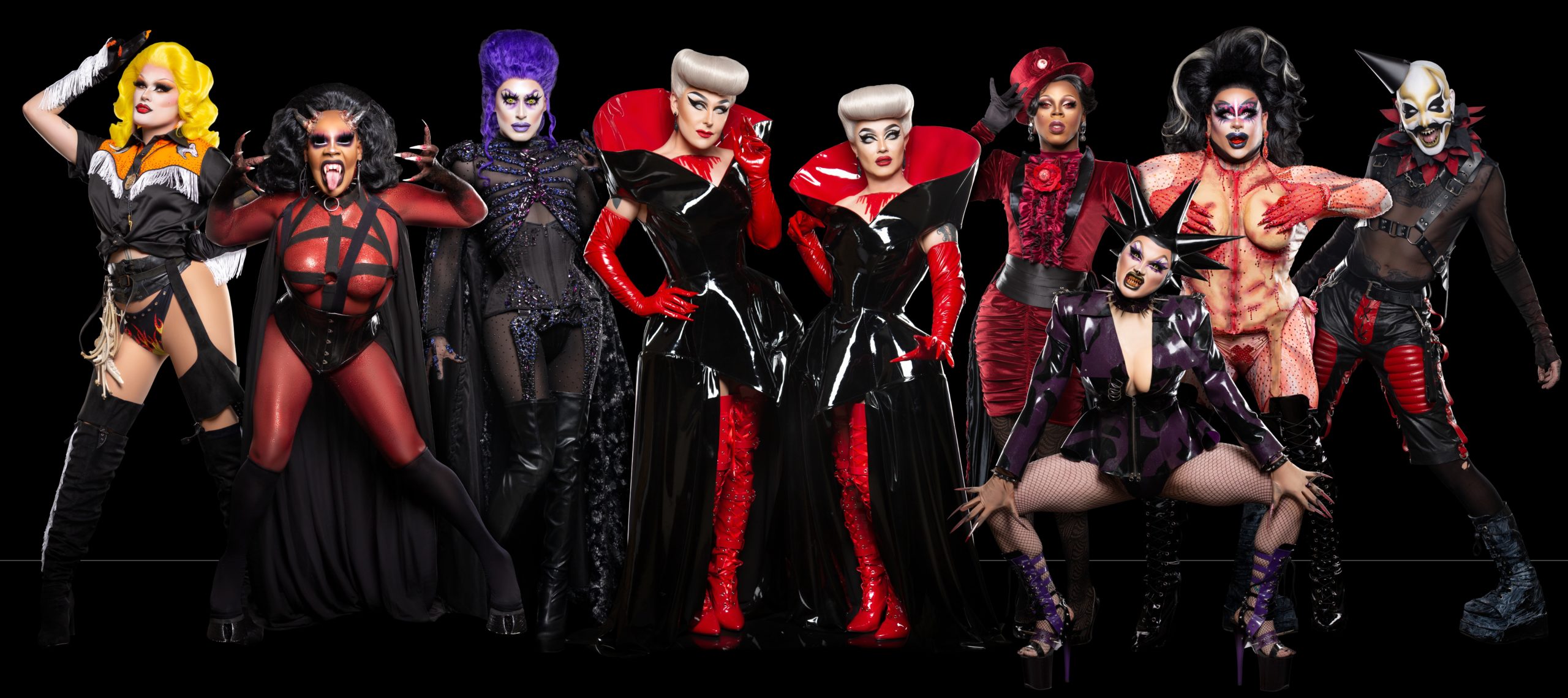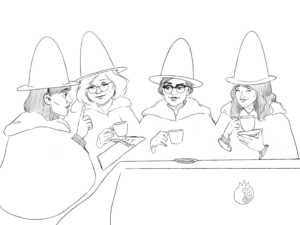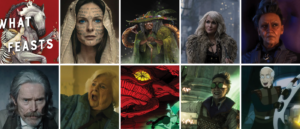One of my major coping mechanisms during the pandemic has been watching reality TV. Since March I have watched Real Housewives squabble in every major city in the United States, cringed as women divided themselves as blondes and brunettes during several seasons of Rock of Love, and sweated through seventeen restaurant wars challenges on Top Chef.
It’s about all I can handle at the moment. The shows are noisy enough to fill my empty apartment and don’t expect me to be paying enough attention to retain major plot information. I can wallow in the absurdity while feeling nostalgic for a time that people could eat at restaurants or scream in each other’s faces without worrying about spreading a virus.
During the haze of this constant reality TV consumption, a friend of mine recommended the two of us watch The Boulet Brothers’ Dragula together. We treated it like a sporting event, my friend sharing stats regarding each contestant’s style of drag and performance abilities as I marveled over their looks and cheered for my favorites. After several episodes I found myself enraptured.

For those who don’t know, Dragula is a competitive reality TV show. Each season is hosted by the Boulet Brothers, a pair of LA-based drag performers who are deeply passionate about the alternative drag scene. Their goal is to crown The Next Drag Supermonster, who is the embodiment of the show’s three principles: Filth, Horror, and Glamour.
Dragula scratches the itch that you want from a competitive reality TV show. The show has a fun structure, the Boulet Brothers’ host dynamic is delightful, and the contestants are talented. Each episode features weekly challenges with objectives such as creating a fictional rock band routine or designing a Dungeons & Dragons-inspired look. Instead of having bottom contestants lipsync for their lives (like another well-known drag competition show), they must participate in Extermination Challenges. After standing in an ice bath, jumping out of a plane, or having to be the center of a roast as contestants throw spoiled food at them, a contestant is cut, cueing a scene in which the Boulet Brothers murder the contestant in a loving homage to horror movies.
Dragula is a wonderful example of reality TV. It features similar beats that I crave when I watch similarly formatted shows, such as Project Runway or Face Off. But what makes Dragula dethrone its competition is the queer love running throughout every aspect of it.
Some of this comes in the form of the contestant’s artistry. Much of the alternative drag scene is inspired by horror movies and tropes. Everybody revels in the monstrous, with contestants gleefully distorting their features as they reflect in confessionals about how connected they feel toward the concept. But so much of Dragula also stems from how deeply connected so many of these contestants are, because of the very tight circles these performers run in. These interpersonal dynamics result in fights featuring both sides wanting to compete at the best level possible and deep conversations that invoke the same energy of sitting on your family’s patio furniture at 2 AM with your best friends. It’s reality TV with a level of sincerity that we rarely get to see.

This sincerity is distilled in the latest addition to the Dragula experience, Dragula Resurrection. This two-hour special premiered on Shudder on October 20th, months after the Boulet Brothers teased that they would save Halloween. Dragula Resurrection features seven former contestants competing remotely for prize money and an opportunity to appear in the series’s fourth season. To make up for the lack of interpersonal conflict that reality TV depends on, Resurrection focuses on the performers discussing their craft, slinging barbs towards fellow contestants, and revealing more about their lives and how they have changed since their appearance on the show.
Instead of the artificial experiences of home dates on the Bachelor or montages of baby photos as contestants discuss their childhoods, the Boulet Brothers let the contestants use the special as a platform to show what the drag world can be for so many people. Priscilla Chambers discusses how she views drag as a trans woman, creating a look to raise awareness of trans sex workers and ending her performance by unfluring a banner with a trans flag and Black Power fist. Victoria Elizabeth Black reflects on her autism diagnosis and how being neurodivergent impacted how she was perceived on the show. Dahli talks about the difficulty of being goth as a mixed kid when so much of the aesthetic focuses on pale skin. Saint reiterates the importance of the Black Lives Matter movement by recalling the time she spoke at a George Floyd memorial. Resurrection’s greatest strength lies in its ability to show that drag can be more than perfectly coiffed wigs and powerful performances. The source of these fantasies are real people who are determined to use their platform to bring attention to issues.

As a viewer, I was relieved to see the performers discussing these issues. I’m glad Dragula Resurrection is not an escapist fantasy. The show makes no effort to diminish issues that have been magnified over the course of 2020. For the first time since I’ve started self medicating with reality TV marathons, I found myself connected with what I was witnessing on my screen. It was so effective that I got teary-eyed when the winner was revealed. I’m not sure if it’s considered a spoiler to say this, but it was extraordinarily satisfying.
Dragula also reiterates that while drag has its issues regarding racism, transphobia, and sexism, it can and should be for everyone. It’s a concept that’s easy to forget in a world that tends to prioritize the drag artistry of white, cis, gay men. While Dragula is not perfect in terms of casting, I am hopeful that Resurrection is the beginning of a push to do better in future seasons and specials.
Until then, I find myself deeply inspired by the series to a point that I’ve begun exploring drag myself. I don’t know if I have what it takes to become the Next Drag Supermonster, but I know that’s not the point. What matters is that putting on a pair of fake eyelashes and lip synching to a Gerard Way song makes me feel more connected in this deeply fractured world than I have in months.
All images in this article sourced from The Boulet Brothers’ Dragula.



